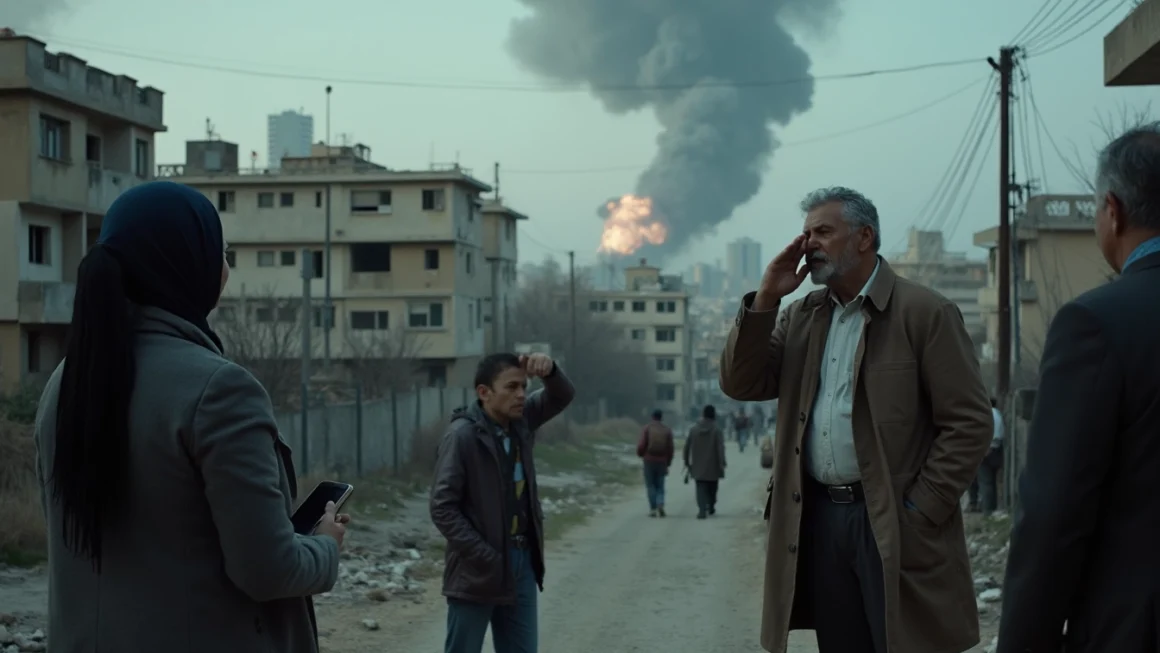Escalation in Middle Eastern Tensions: Analyzing the Impact of Recent Airstrikes
Table of Contents
The Middle East, a region often beset by geopolitical tensions, witnessed another significant escalation as an Israeli airstrike targeted the suburbs of Beirut. This development came shortly after a statement from the United States expressing opposition to the intensifying air assault. The interplay between these forces is reshaping the geopolitical landscape and raising urgent questions about future conflict dynamics.
Understanding the Context of the Israeli Airstrike
The recent airstrike marked a crucial point in the ongoing conflict. Israel’s actions were reportedly a response to heightened threats in the region, asserting their stance against perceived dangers. The choice of Beirut’s suburbs indicates a strategic move, targeting areas believed to house elements threatening Israeli security.
Background of the Conflict
The history of Israeli-Lebanese tensions dates back decades, with each strike and counterstrike further complicating peace efforts. Border incidents and militaristic pressures have consistently fueled a volatile peace, pushing stakeholders to the negotiation table time and again. The complexities of these interactions underscore a delicate balance that has yet again been disturbed.
U.S. Response and International Implications
The U.S. stance against the air assault introduces another layer of complexity. Historically a staunch ally of Israel, the United States’ opposition to the full scope of these airstrikes highlights a nuanced diplomatic position. It underscores an effort to mitigate conflict escalation while maintaining strategic partnerships in the region.
Global Reactions
- Several nations have called for restraint and dialogue, emphasizing the need for de-escalation.
- The European Union and United Nations have reiterated their calls for peaceful negotiations and adherence to international laws.
- Regional actors are closely monitoring the situation, mindful of the repercussions that could ripple through neighboring countries.
Potential Consequences and Future Outlook
The ongoing conflict poses significant risks not only to the directly involved nations but also to regional stability. The potential for larger-scale warfare looms if diplomatic avenues remain unpursued. Immediate consequences can include humanitarian crises, displacement, and economic disruptions.
Pathways to Peace
Efforts to bring about lasting peace must prioritize direct dialogue between conflicting parties, supported by international mediators. Confidence-building measures and adherence to ceasefire agreements could be the steps towards a sustainable resolution. Solutions should address the underlying issues fueling the hostilities, ensuring a comprehensive approach to peace.
While the path ahead is uncertain, international collaboration remains pivotal. Stakeholders are encouraged to play a proactive role in fostering dialogue and reducing tensions. For insights into strategies aimed at building robust and peaceful international relations, visit this portfolio website.
Conclusion
The recent Israeli airstrike on Beirut’s suburbs is a poignant reminder of the fragile nature of Middle Eastern peace. It compels international actors to reassess strategies and reinforces the need for urgent diplomatic initiatives. As tensions simmer, the pursuit of peace continues to be a paramount objective for stability and coexistence in the region.




